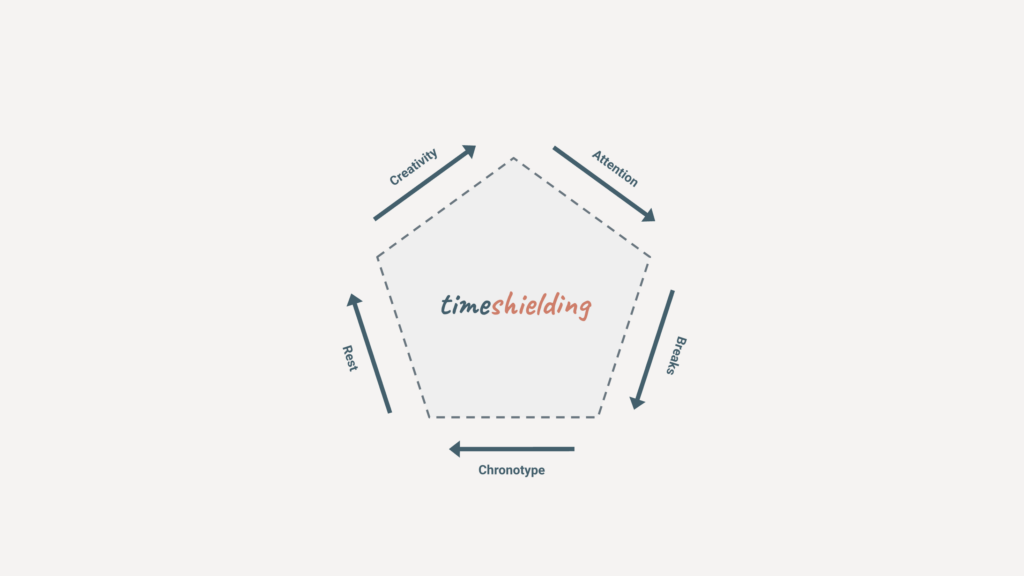A topic that comes back often in conversations is time management. How do I write this newsletter every week, while managing a business, writing a book, and completing a PhD? Do I still have time to hang out with my friends and family? Can I share any tips around time management?
Taking control of your schedule
Except if we end up inventing time travel, we need to accept the fact that there are only 24 hours in a day. In order to achieve our goals, we need to be smart about how we allocate our time to different tasks and activities.
What is urgent is often different from what is truly important. Short-term and long-term goals do not always align. What’s expected from you and what you actually want to do are not always the same. So how do you manage your time so you can achieve what matters to you while attending to your responsibilities?
I follow three simple principles:
1. Make time for the things that matter, and not the other way around. I always take a few minutes at the beginning of the week to ensure I have time for the few key goals I’m working towards. At the moment, these are writing my book, completing my PhD, and taking care of my health. So I block time for these things, I make sure to move them if there are any overlapping meetings that were added by clients, and I feel good about knowing that I’ll have time for the things that matter.
2. Become comfortable saying “no” or “let’s do this in a few weeks.” If something is neither important, nor urgent, nor authentically aligned with what currently feels most alive, I either say no or I ask if it’s alright to chat about it in a few weeks when I might have more headspace for potentially interesting yet low-priority projects. Now, here’s the magic behind why this works: more often than not, people don’t follow up, and that’s an hour I save for things I want to work on.
3. Manage your energy, not your time. This means that instead of trying to fill your calendar with tasks to feel productive, try to keep your calendar as free as possible to allow a fluider approach to work. Move things around based on your energy levels. If you feel a spur of energy, you can decide to use the next hour to make progress on a creative project. If you feel low energy, you can reply to some unimportant emails. This is only possible if there’s enough wiggle room in your calendar.
Those principles are at the core of how I deal with our very real cognitive bottlenecks that put hard limits on how much we can achieve. And there is one tool that has been instrumental in my ability to apply these principles. I call it timeshielding.
How to use timeshielding to protect your time
Timeboxing is a common way to manage your calendar. Because it’s structured around fixed blocks of time and specific tasks, timeboxing can feel self-coercive, and many of us end up blocking time in our calendar then happily proceed to ignore these blocks.
I use a different approach that’s more fluid and flexible. Timeshielding is about protecting blocks of time in your calendar for what matters to you, with no specific task list. This could be for research, reading, creative brainstorming, or even just doing nothing. Because timeshielding feels more fun than timeboxing, you’re less likely to ignore the blocks in your calendar.
You can use timeshielding to achieve the following:

Protect your creativity. Make room in your calendar for your curiosity attractors, the rabbit holes and the mind wandering that can lead to unexpected creative breakthroughs. Let go of outcome-based goals for a few hours every week and focus on your creative output, with no performance metric or specific result in mind, other than feeling inspired and sharing your ideas with the world.
Protect your attention. Avoid multitasking. Constantly switching between tasks has a terrible effect on attention. Pick one area of focus and give it your full attention for the duration of the session. Remove distractions by putting your phone in another room and turning off notifications on your laptop.
Protect your breaks. It’s easy to fill your calendar with lots of things to do, without taking the time to let your brain recharge. Spend some time alone, go take a walk, meditate—whatever rocks your boat, as long as it involves getting away from your laptop and your phone. And consider putting these breaks in your calendar!
Protect your body clock. Think about the times of the day where you feel more productive. Are you more of an early bird or a night owl? If you have enough flexibility to do so, schedule your time according to your chronotype, with the most important tasks happening when you’re at your highest performance levels.
Protect your rest. We tend to sacrifice rest in order to get more done. Well, that just doesn’t work. Research shows that being sleep deprived negatively affects your performance. It’s harder to focus and harder to switch between tasks when you’re tired. So set a time to close your laptop in the evening, and stick to it so you can wind down and get enough sleep.
Timeshielding can be combined with other techniques to mindfully improve your productivity, such as using the MoSCoW method to define your priorities or the DECIDE framework to choose what to work on next, but I found that tools don’t matter if you don’t get the fundamentals right.
Making space for creativity, avoiding multitasking, taking breaks, aligning your work with your chronotype, and getting enough sleep—these are the most important aspects of time management if you want to achieve your long-term goals without sacrificing your mental health.
